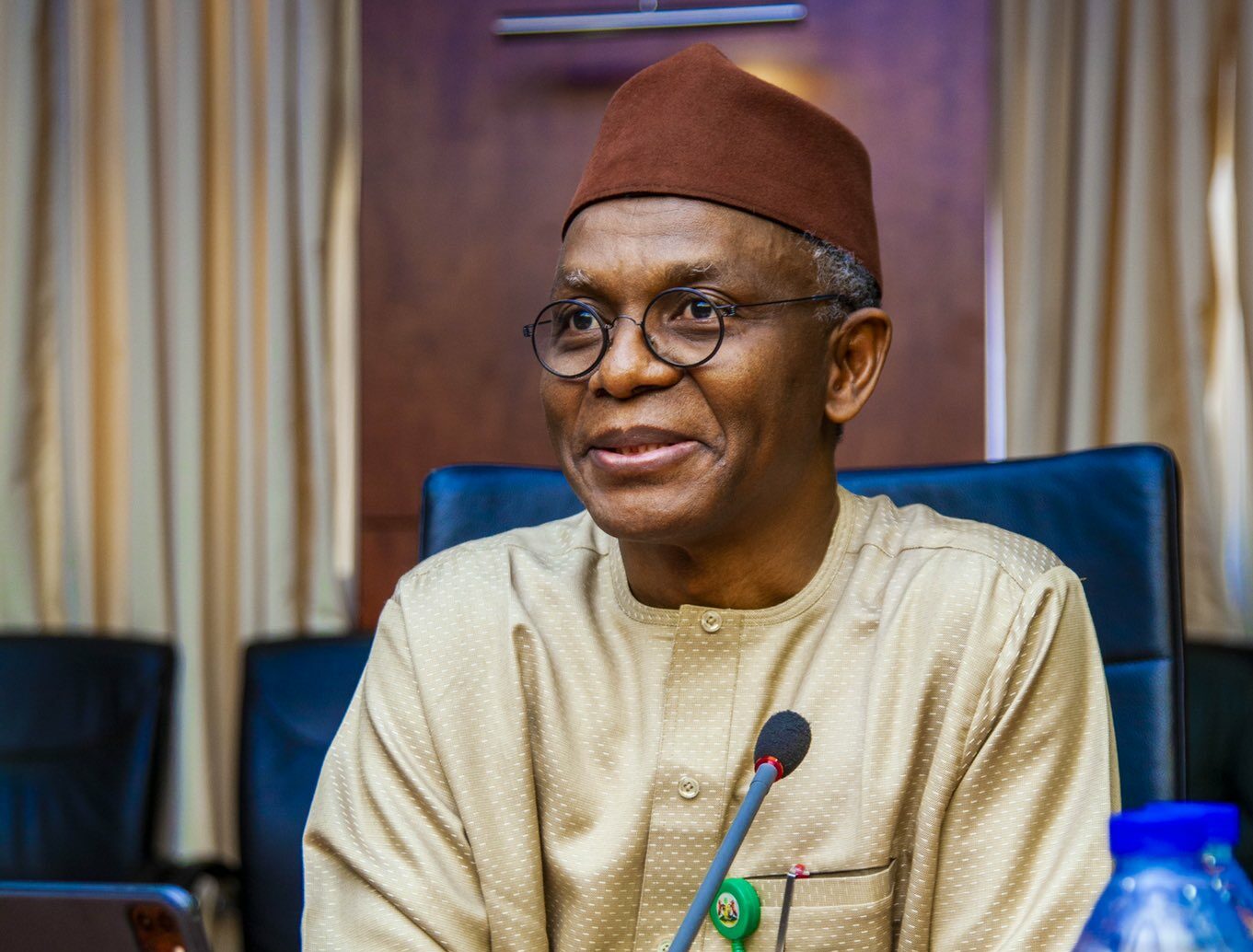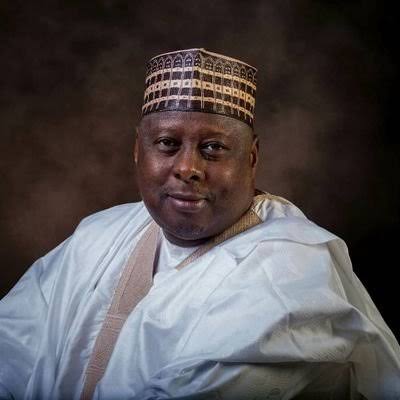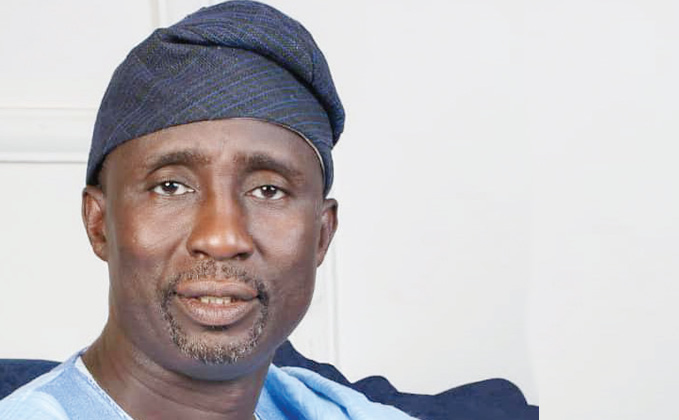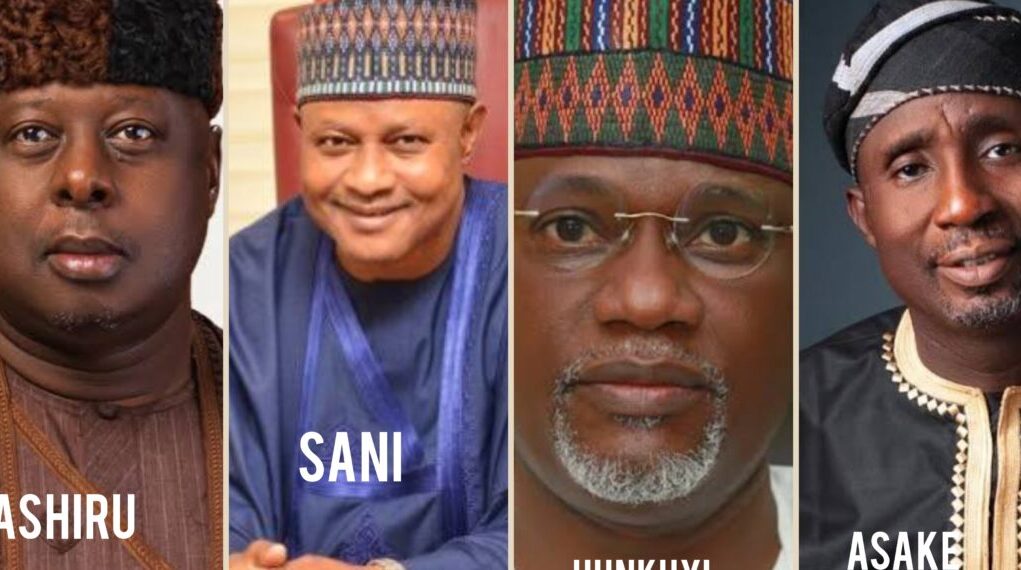
The March 11 governorship election in Kaduna State, north-west Nigeria, may be the keenest in recent times.
Kaduna is among the 28 states where governorship elections will hold on that date. According to the figures INEC released recently, the state has about 4.3 million registered voters.
The state is strategic because it is considered the political capital of the North. It was once the capital of Northern region, which has been split into 19 states. As a result, interest in its internal politics spread far beyond its boundaries.
Since it was created in 1967, Kaduna has had 20 governors, nine of them democratically elected while the others were military officers. Katsina State was part of Kaduna State until 1987 when it was split by the military administration of President Ibrahim Babangida.
Since 1999, Kaduna has been ruled by five elected governors.

Contents
1999
The 1999 election was straightforward. Nigeria had just returned to democracy after a long military rule. Many people were not interested in the emerging dispensation at the time and therefore paid little or no attention to the transition in the state.
Ahmed Makarfi became the first governor of the state in the Fourth Republic with an overwhelming victory in the election. He was elected under the Peoples Democratic Party (PDP) in 1999 and re-elected in 2003.
Remarkably, in 2003, his close political ally, Suleiman Hunkuyi, decamped to the defunct All Nigeria Peoples Party (ANPP) and contested against his former boss, but lost.

2007
In 2007, Namadi Sambo was elected as governor. He was the anointed candidate of the outgoing governor, Mr Makarfi.
About three years into his tenure, Mr Sambo was appointed vice president following the demise, in May 2010, of President Umaru Yar’Adua and the emergence of Goodluck Jonathan, his deputy, as president.

2011
Mr Sambo was succeeded by his deputy, Patrick Yakowa, who went ahead to win the 2011 governorship election.
Mr Yakowa, from Southern Kaduna, beat his closest opponent, Haruna Saeed of the defunct Congress for Progressive Change (CPC), to retain the position.
Mr Yakowa is the only Christian among the governors that have led the state since 1999. However, he died in a plane crash in December 2012 and Ramalan Yero, his deputy, was promoted to the topmost political position in the state.

2015
Mr Yero, also of the PDP as his predecessors, was defeated convincingly by Nasir El-Rufai in the 2015 governorship election. Mr Yero had spent a little over two years as governor at the time of his defeat.
Mr El-Rufai was elected the governor under the All Progressive Party (APC). His administration came with changes and controversies. He is a man loved and hated by many in Kaduna State.
His administration renewed and expanded the state’s Infrastructure and is considered one of the most successful governors in the state’s history in terms of infrastructure. But many, especially Christians in the state, see him as a divisive leader.

2019
The state was sharply divided along ethnic and religious lines.
Until the 2019 election, the state had an unwritten tradition that if the governor is a Muslim, the deputy would be a Christian and vice-versa.
However, that year, Mr El-Rufai, a Muslim, broke that tradition when he picked a Muslim woman, Hadiza Balarabe, as his running mate and subsequently deputy governor. Between 2015 and 2019, Bala Bantex, a Christian, had served as his deputy.
2023
How the candidates stand
The stage is now set for another election as Mr El-Rufai concludes his second term in office on 29 May.
The 2023 governorship contest promises to be challenging and fierce. A total of 17 candidates have been cleared for the election with four of them considered major contenders. The top candidates are not leaving anything to chance in their quest to secure the support of the people of the state.
READ ALSO: Former Kaduna senator Hunkuyi dumps PDP
The APC has Uba Sani, a serving senator, as it candidate while Isah Ashiru is the flag bearer of the PDP. The other major contenders are Jonathan Asake of the Labour Party (LP) and Mr Hunkuyi of the New Nigerian Peoples Party (NNPP).
Analysts and keen watchers of political development in Kaduna State, however, believe it will be a two-horse race between Messrs Sani and Ashiru.
![Senator Uba Sani [PHOTO CREDIT: @IsaOzo]](https://media.premiumtimesng.com/wp-content/files/2020/07/Ec0kd8ZWoAQK7U_.jpg)
Uba Sani
It is a widely-held view that Mr Sani will ride on the achievements of the incumbent, Mr El-Rufai, a fellow APC member, to power. However, it is not going to be an easy ride. He will have to battle with those aggrieved with the policies of the outgoing governor.
Many people in Kaduna believe Mr El-Rufai was harsh in his transformation agenda in the state. Many people lost their means of livelihood due to demolition of houses and market remodelling in the state.
Also, some are of the view that the government’s development projects were not spread across the state as they are prominent in only three major cities, namely Kaduna, Zaria and Kafanchan. The local communities were neglected. That perhaps is the reason that at every campaign gathering, Mr Sani promises the people continuity with caution.
What may, however, count for the Kaduna Central senator is his promise that he would reverse some of the controversial policies of the governor, if elected, such as the sack of some traditional rulers.
Mr Sani is also said to have a big war chest for the electoral contest, all of which make him the candidate to beat on 11 March.

Isah Ashiru
Mr Ashiru is not new to the Kaduna gubernatorial contest. In 2019, as the candidate of the PDP, he lost to Mr El-Rufai. This time, he has vowed to crush Mr Sani, Mr El-Rufai ‘s anointed candidate.
Mr Ashiru seems to enjoy the support of most of the people who are angry with the APC government in the state.
A grassroots politician since 1999, he understands the problems of the people, especially those living in villages and the hinterland. This, he believes, gives him the advantage.
Mr Ashiru said he would review the policies of Mr El-Rufai’s government, keep those he considers good and throw away the others.
![Suleiman Hunkuyi [PHOTO: Facebook]](https://media.premiumtimesng.com/wp-content/files/2020/05/Suleiman-Hunkuyi-.jpg)
Hunkuyi, Asake
On their parts, Messrs Hunkuyi of the NNPP and Jonathan Asake of the LP are perceived by many as spoilers in the race. None of them has started serious campaigning beyond mounting posters and showing some presence in the social media. Their activities appear to be favourable to the PDP candidate.
Although Mr Hunkuyi is a grassroots politician, he is not believed to have the needed finances to mount a serious challenge. Also, his party, NNPP, is relatively new and unpopular in the state.
Mr Asake is quite popular in Southern Kaduna where he has been a community leader. However, people of the region often voted for the PDP and Mr Asake’s popularity may not change that. Also, little is known about him in the more populous northern part of the state.

What the people say
Hassan Lawal, a political analyst and commentator in Kaduna, believes the election will be keenly contested because it will not be influenced by the incumbency factor.
“I believe what the people want is what will come to them in the forthcoming governorship election. You know it will be a new government and the advantage of incumbency is not there, so I think Kaduna people are determined,” he told PREMIUM TIMES.
Hawwa Magani, another resident, shares the view, saying the election is going to be a tough one, especially because both Mr El-Rufai and President Muhammadu Buhari are not on the ballot.
“This time around, we will have a fierce election. I say this because the incumbent governor is not going to be on the Ballot and even Buhari,” he said. “People are not so keen on the continuity slogan of the APC candidate. They want a change of party and style of governance. So it will be a big fight.”
Another resident, Umar Mamman, said “ Yes El-Rufai did well in the state. Some people feel he should have someone like Uba Sani to consolidate all the achievements. I won’t say he will win, but he is more likely.”


















































